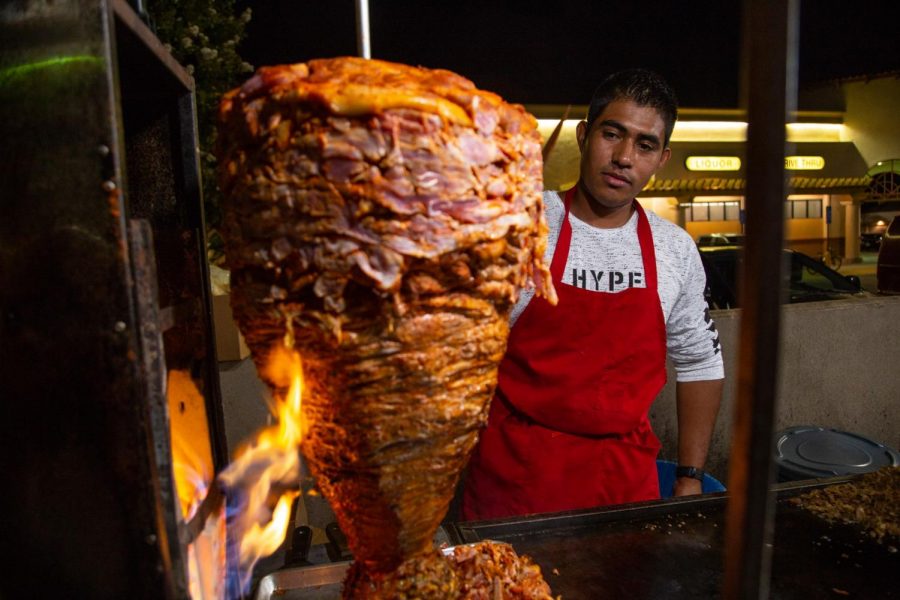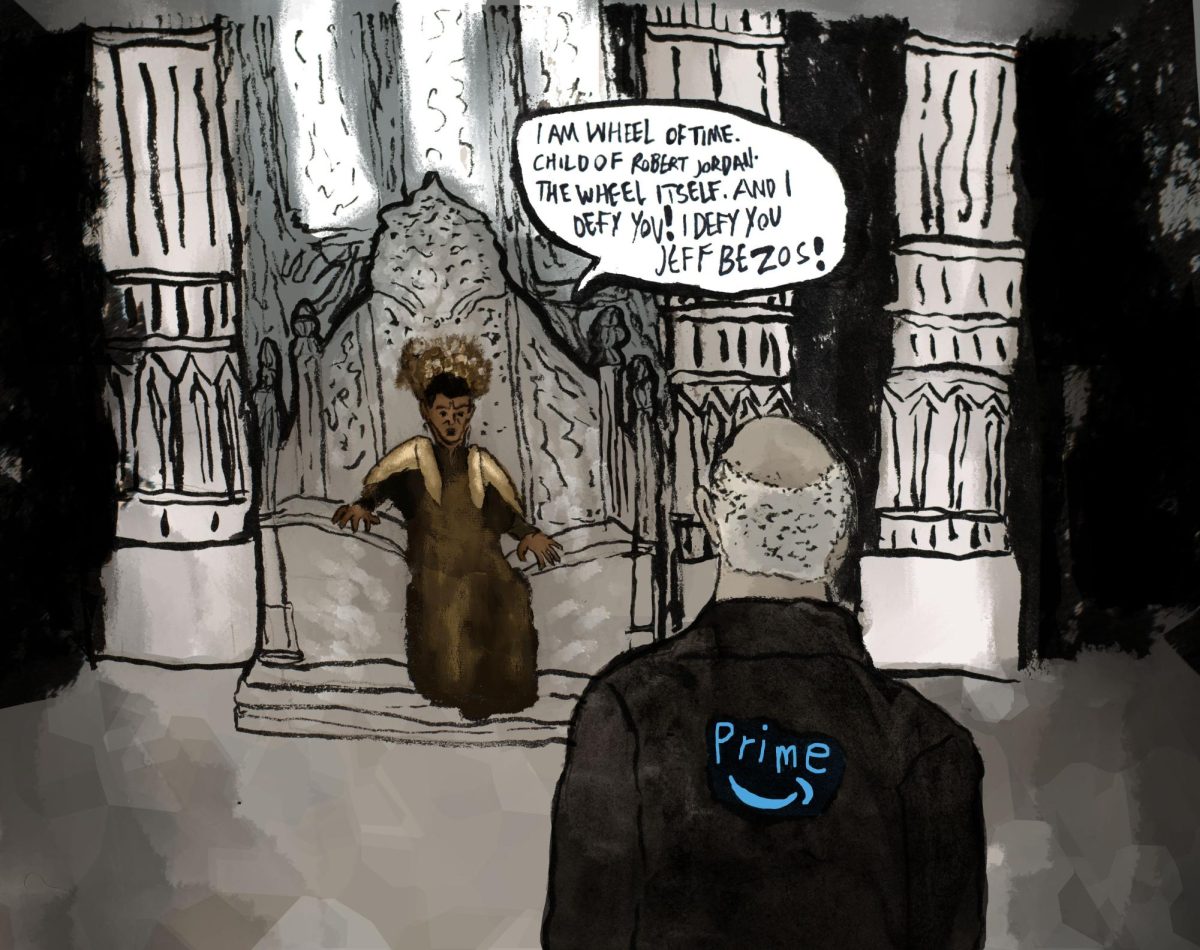As the carne asada meat is scooped with two small warm tortillas soaked in oil, Rafael Gonzalez, el taquero, believes opening up a taco stand is worth the risk.
Many taqueros in the San Fernando Valley like Gonzalez, who works at Tacos El Bebe, don’t have a legal permit to vend. According to Small Business Charon, vendors need to take a food-handling class, have a vending license and a health permit.
Gonzalez says having a permit has its disadvantages.
“It charges a lot of taxes and what type of oil you can or cannot use,” he said.
He and the owner of the stand are aware public health inspectors can come at any moment and take away their goods. They can also fine each employee with a ticket ranging from $400-$1,000.
He just started working in the stand about three weeks ago and feels that it’s an easy format to get employment.
“The hirer doesn’t request any type of document to work,” Gonzalez said. “All they need to know is if you’re able to perform well in this job.”
Many vendors don’t have the required documents like proof of citizenship or a social security number in order to apply to jobs like office employment or at stores. It’s also an alternative job for people to have because it’s a necessity to be financially stable and to survive.
The majority of the taco stand employees are low-income, undocumented and have this job as their only or second source of income.
It supports taqueros like Gonzalez to pay bills, help out their families and have some extra cash on the side. Gonzalez, who is a father to a young boy, says it helps him out to support his child.
According to an Economic Roundtable Study, vendors would make about “$204 a week or $10,098 a year in revenue” vending food such as tamales, ice cream, raspados and other types of food. They also generate $504 million in total annually.
Gonzalez said the owner has two taco trucks and eight taco stands in the Los Angeles area, three of which are located in the San Fernando Valley.
Gonzalez is aware of Senate Bill 946, or the Safe Sidewalk Vending Act, which allows vendors to vend in the street legally so long as they have a permit. However, Gonzalez’s taco stand doesn’t have a permit to legally vend yet.
Of course, his isn’t the only stand in the Valley without a permit. Corima, 23, owns Tacos El Infierno along with her husband Oscar, who is 24. Corima explained that it’s easier to start a business having a taco stand than a restaurant.
“It’s the chance to get your own business started without having to do all the process because any other way I don’t think many Latinos would survive in the economy,” she said. “It’s expensive to open a restaurant. It’s like almost impossible for many, but a taco stand seems more reachable and it works.”
According to an article by Toast, a survey done by restaurantowner.com indicates that starting a small business costs $175,500 on average.
Many of these stands don’t have the luxury to open a restaurant. That’s why many of them start with a stand. The young couple had a rocky start opening up a stand in the street on Reseda Boulevard and Nordhoff Street.
Corima and her husband began vending four months ago and didn’t think they were going to have problems with anyone in general. It wasn’t until another taco stand claimed that the couple’s own taco stand was invading their property.
“She came down to harass us to kick us out of here ’cause this was her area to sell, but we didn’t let it stop us because we knew we were doing nothing illegal,” Corima said. “(It happened) the second day we pop up. They actually set up a taco stand next to us trying to kick us out.”
To this day Corima and Oscar continue to vend on the same street in front of the UFC Gym, Pieology Pizza and Subway restaurant.
They serve about 150-200 customers during the night throughout the week. They sell tacos, burritos, mulitas, quesadillas, vampiros, keto tacos and ribs.
There are more than 50,000 street vendors in Boyle Heights, Hollywood and other areas of Los Angeles County, according to the Southern California Public Radio.
Corima believes a taco stand will always catch customer attention because they notice what’s going on.
“Well right here you can exactly see what we are cooking, like the meats are fresh from the grill,” she said. “I think people like that, like seeing what they are going to eat. It’s friendly, you feel like you’re in Mexico, it makes you feel a little bit of home.”












